The Gift of Reading: Romancing the Fruitcake—A Tale of Two Genres
For the past two weeks on my morning runs, I’ve been listening to the podcast Christmas Wars: A Very Merry Rivalry on the battle for Christmas movie...
AP & Honors Mathematics
Explore Wiley titles to support both AP and Honors mathematics instruction.
Literacy Skills & Intensive Reading
Connections: Reading – Grades 6–12
Empower student success with a proven intensive reading program that develops strong reading skills in striving readers.
Drama, Speech & Debate
Basic Drama Projects 10th Edition
Build students’ confidence and competence with comprehensive, project-based theatre instruction.
Literature
Connections: Literature
Support learners as they study dynamic, relevant texts and bring the richness of diverse voices to students through literature.
Literature & Thought
Develop critical thinking, reading, and writing across literacy themes, genres, historical eras, and current events.
Language Arts
Vocabu-Lit® – Grades 6–12
Help students build word power using high-quality contemporary and classic literature, nonfiction, essays, and more.
Connections: Writing & Language
Help students develop grammar, usage, mechanics, vocabulary, spelling, and writing and editing skills.
Reading/English Language Arts
Measuring Up to the English Language Arts Standards
Incorporate standards-driven teaching strategies to complement your ELA curriculum.
English Language Learners
Measuring Up for English Language Learners
Incorporate research-based best practices for ELLs with an approach that includes a focus on language acquisition strategies.
Mathematics
Measuring Up to the Mathematics Standards
Incorporate standards-driven teaching strategies to complement your mathematics curriculum.
Foundations
Measuring Up Foundations
Help students master foundational math skills that are critical for students to find academic success.
Science
Measuring Up to the Next Generation Science Standards
Give students comprehensive NGSS coverage while targeting instruction and providing rigorous standards practice.
Assessment
Measuring Up Live
Deliver innovative assessment and practice technology designed to offer data-driven instructional support.
For a better website experience, please confirm you are in:

Just last week, my oldest son asked me what I wanted for Christmas. My answer? Nothing.
It’s not that I don’t want anything or that I’m some noble soul untouched by the materialistic trappings of Christmas and Charlie Brown lamenting “Oh, no—my own dog gone commercial.” I just, literally, in that moment could think of nothing I wanted for Christmas.
But I did think of Patrick McDonnell’s delightful children’s book The Gift of Nothing. Mooch earnestly wants to give a gift to his best friend Earl, but Earl, proud owner of bowl, bed, and chewy toy already had everything. Mooch must answer the question that has beset even the best gift givers: “What do you get someone who has everything?” (9)
At this point McDonnell begins to artfully play with the simplest of words. Mooch decides to give Earl “the gift of nothing” (12), which proves even more of a challenge because “in this world filled with so many somethings, where could he find nothing?” (13)
Mooch eventually presents Earl with a big, gift-wrapped box of nothing and McDonnell delightfully plays with words once again:
“For me?” said Earl
“Mooch, you didn’t have to give me anything.”
Who told him? thought Mooch. (36–37)
The remaining pages of the book are just a wonderfully sweet reminder of how much nothing can mean.
And here’s a little something—teachers can pair McDonnell’s book with the O. Henry classic “The Gift of the Magi,” a story of two people who have practically nothing but are so in love they each give up their everything to get something for each other—channelling my Patrick McDonnell here.
But what a gift O. Henry gives us, in his story. His first lines are a lesson in the economy of words: “One dollar and eighty-seven cents. That was all. And sixty cents of it was in pennies.”
And the gifts keep coming:
“There was clearly nothing to do but flop down on the shabby little couch and howl.”
“[L]ife is made up of sobs, sniffles, and smiles, with sniffles predominating.”
“Had the queen of Sheba lived in the flat across the airshaft, Della would have let her hair hang out the window some day to dry just to depreciate Her Majesty's jewels and gifts. Had King Solomon been the janitor, with all his treasures piled up in the basement, Jim would have pulled out his watch every time he passed, just to see him pluck at his beard from envy.” (2)
My youngest child, now a junior in college, made Christmas giving easy on the rest of us. As a youngster, he would give us all a basic handwritten list. The list eventually progressed to a Word document with clip art and finally progressed to him emailing everyone in the family a PowerPoint slide show of images with pricing and links for purchase.
Maybe I should consider something similar or just ask for nothing and see what I get.
Mini Lesson: The Gift of Words
Give students gift tags or print some for them to use. Larger tags will work better.
Tag It: Using O. Henry’s “The Gift of the Magi,” The Gift of Nothing, or any text of the student’s choice (independent reading book, something from their journal/writer’s notebook, a previously studied book or story), have students select their favorite line from the text. Ask students to write the line and where it comes from on their gift tag.

Gift Swap: Collect the gift tags from the students. Number each of the tags. Create a set of numbers for students to randomly select. Have students draw a number. The number the student draws is the gift of words they receive. Teachers can give the gift tag or have them displayed in the room for students to collect once they receive their number.
The Lost Art of Thank You Notes: Have students affix the gift tag they received to a piece of paper. Students will respond in writing to the gift of words. Teachers can guide student responses with sentence stems.
Have students write: Thank you for the gift of words from (insert title: The Gift of Nothing by Patrick McDonnell. I can see why you selected these words because (students complete their response). I selected (students paraphrase what they wrote on their gift tag) because (students complete their response by explaining why they chose their gift of words.)
Have students return the gift of words to the original owner. Ask students to share what they wrote or received in writing with the class.
Lesson Extension: Gift Wars
Print five to six gift tags for each student. For each step of the activity, it is best if students write on only one side the gift tag.
Tag One: On a gift tag, have students write one or two sentences about gifts in general. Teachers can say: “Take one of your gift tags and write one or two sentences about gifts in general.”
Example: Sometimes we get so wrapped up in the gifts we receive that we overlook the fact that someone chose to give us a gift. Getting a gift is so often more important than the gift itself.
Tag Two: On a second gift tag, have students write one or two sentences about sacrifice in general. Teachers can say: “Take your second gift tag and write one or two sentences about sacrifice in general.”
Example: People tend to think that a sacrifice is about the person who made the sacrifice, but a sacrifice, to truly be a sacrifice, can never be about the person making the sacrifice.
Tag Three: Give students a third gift tag and have them fill in the blanks to the statement below: “In “The Gift of the Magi” by O. Henry, (student’s answer) makes the biggest sacrifice with (his/her) gift.” Students will choose either Jim or Della.
Example: “In “The Gift of the Magi” by O. Henry, Jim makes the biggest sacrifice with his gift.”
Or Della makes the biggest sacrifice with her gift.
Tags Four, Five & Possibly Six: Students will create reasons to support their response on Tag Three. Students will write and explain one reason per tag.
Example: (Tag Four): Hair can always grow back. It is a renewable commodity. Giving up something you can always get back isn’t really a sacrifice.
(Tag Five): Jim’s watch has history. The watch had passed to him from his father and grandfather. By giving up the watch, Jim also gives up a family heirloom that ends a tradition.
Some Assembly Required: Once students have their reasons written out on tags, ask students how they would use their tags to construct an essay response to the prompt, “Which character sacrifices the most in “The Gift of the Magi” by O. Henry. Students will begin manipulating their tags into a structure they think works. Tell students they are free to use and not use any of the tags. Teachers might ask students to glue or tape down their tags on a sheet of paper in the order they might use them.
Tag Along: As an extension, teachers may give students another tag and ask them to write a line or two in response to the following: Someone who disagrees with me might say (students will complete the thought). Students can decide whether they want to include the concession into their structure. Some students may choose to use their writing on gifts and sacrifice as either an introduction or conclusion.
Put a Bow on It: Once students have their structure arranged, discuss with them what else they might need to turn this writing into a complete composition: transitions, punctuation, details, text evidence, etc. Have students turn their structure into a composition. Take students through writing as a process with this piece of writing.
Interested in buying any of the books mentioned in this post? Visit our classroom libraries page.
Download the pdf to easily download or print!
Michael Méndez Guevara is a former high school journalism and English teacher who spent his time in the classroom helping students see themselves as writers and fall in love with reading through the world of young adult literature. As an educational sales consultant with Perfection Learning®, Michael works with teachers and schools on improving their literacy instruction and providing resources to help students achieve academic success. He has taught elementary school, middle school, and high school and has worked as a district level leader and served on the Texas state standards revision committee that developed the state’s current literacy standards. He is the father of three adult sons, the youngest a student at the University of Kansas—Rock Chalk! Michael is working on a professional development book for literacy educators and currently has agents reading the manuscript of his young adult novel, The Closest Thing to a Normal Life. When he's not reading, writing, or running, Michael is fully committed to watching as much Law & Order as possible.
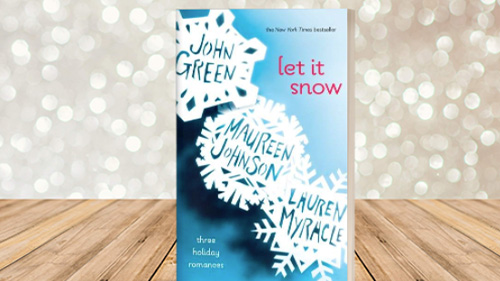
For the past two weeks on my morning runs, I’ve been listening to the podcast Christmas Wars: A Very Merry Rivalry on the battle for Christmas movie...
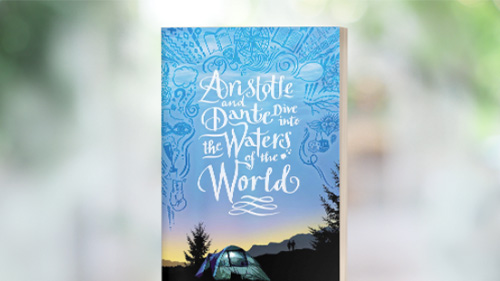
For most of the past year and half, I have spent most of my waking hours querying or obsessing over querying literary agents for my young adult novel

On the day after state testing, one of my sophomores burst into the room and announced: “Mr. G, I used rule of three on my essay.” It was a proud...

Before transitioning away from life as a public school educator, I worked as the academic trainer for English and social studies in a large, urban...

The main character in The Girl with the Louding Voice by Abi Daré, Adunni, is on a personal journey to give herself the best life she can despite...

In Kimberly Brubaker Bradley’s Fighting Words, 10-year-old protagonist Della gives readers a front row seat to her daily life in foster care with her...
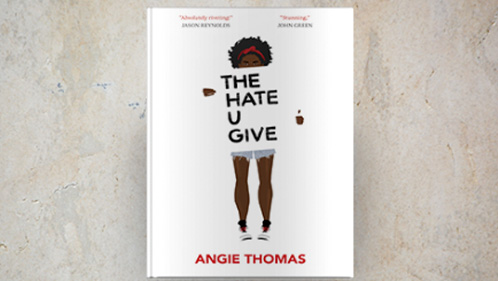
Code-switching is changing something about yourself to fit a certain situation or audience. The way you might talk to your friends versus talking to...

The most beautiful part of January isn’t the snow or the magical lighted displays around town, but instead it’s the chance for a new beginning....

To be mentally healthy requires work, and many youth and their families turn to some kind of therapy, counseling, or inpatient program to aid in that...
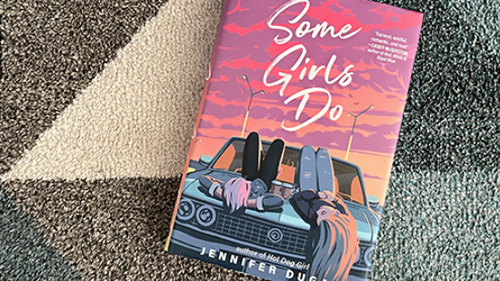
Many students endure the (not-so-fun) ritual of moving schools mid-year. In Some Girls Do by Jennifer Dugan, this is the reality of one of the two...
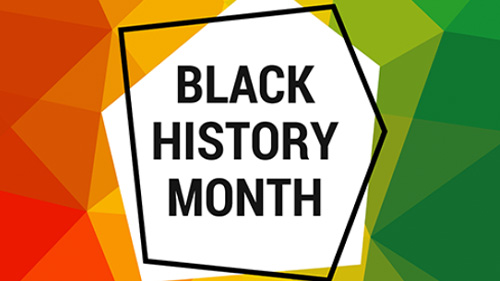
On December 20, four days after his semester finished, my youngest son flew home for Christmas break. On December 29, he flew back—19 days before his...

Back when I was a whippersnapper wearing dungarees and walking to school and back in the snow uphill both ways, nothing beat the school book fair....
